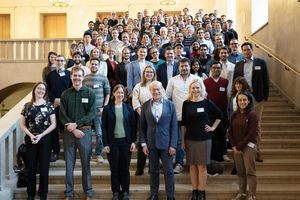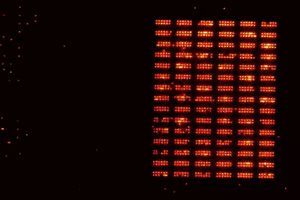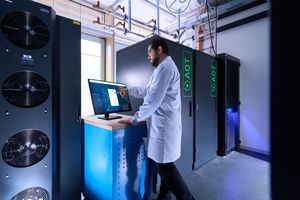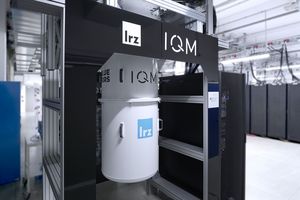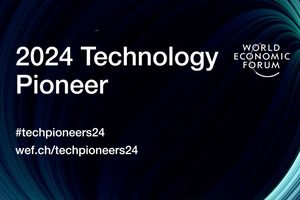
News
Arnold Sommerfeld School on "Quantum Computing – Status and Prospects"
MQV members are co-organizing this year's summer school on on "Quantum Computing – Status and Prospects" of the Arnold Sommerfeld Center for Theoretical Physics at LMU Munich, 6–10 October 2025.
Symposium "Towards applications of quantum computing": networking science and industry
On 11 and 12 November, the symposium "Towards applications of quantum computing" took place. The event was organized by Munich Quantum Valley (MQV) together with the Fraunhofer Institute for Cognitive Systems IKS, supported by Bayern Innovativ and QUTAC. The symposium brought together representatives from industry and science working on quantum computing applications with hardware and software developers.
MQV researchers continously operate quantum register with 1200 atoms for the first time
A research team from Munich Quantum Valley (MQV) at the Max Planck Institute of Quantum Optics (MPQ), in collaboration with the start-up planqc, has achieved a breakthrough on the way to scalable quantum computers. They assembled a quantum register of 1200 atoms and were then able to operate it continuously for over an hour.
Ion-trap quantum computer ready for novel research and development at the LRZ
The ion-trap quantum computer from Alpine Quantum Technologies, procured by the Leibniz Supercomputing Centre and Munich Quantum Valley, is now operational at LRZ's Quantum Integration Centre, making it the first of its kind in a computing center.
Leibniz Supercomputing Centre hosts Germany's first hybrid quantum computer
At the Leibniz Supercomputing Centre, a quantum computer based on superconducting qubits has been successfully connected to the SuperMUC-NG supercomputer. Initial tests show that the two technologies work together, enabling hybrid quantum computing. Today, the system has been formally unveiled.
planqc selected to join World Economic Forum as Technology Pioneer 2024
As announced today, the MQV start-up has been selected to join the World Economic Forum’s Innovator Communities in the Technology Pioneers 2024 Cohort.
A trapped-ion quantum computer for Munich Quantum Valley
In cooperation with Munich Quantum Valley, the Leibniz Supercomputing Centre is procuring a quantum computer based on trapped-ion technology.

